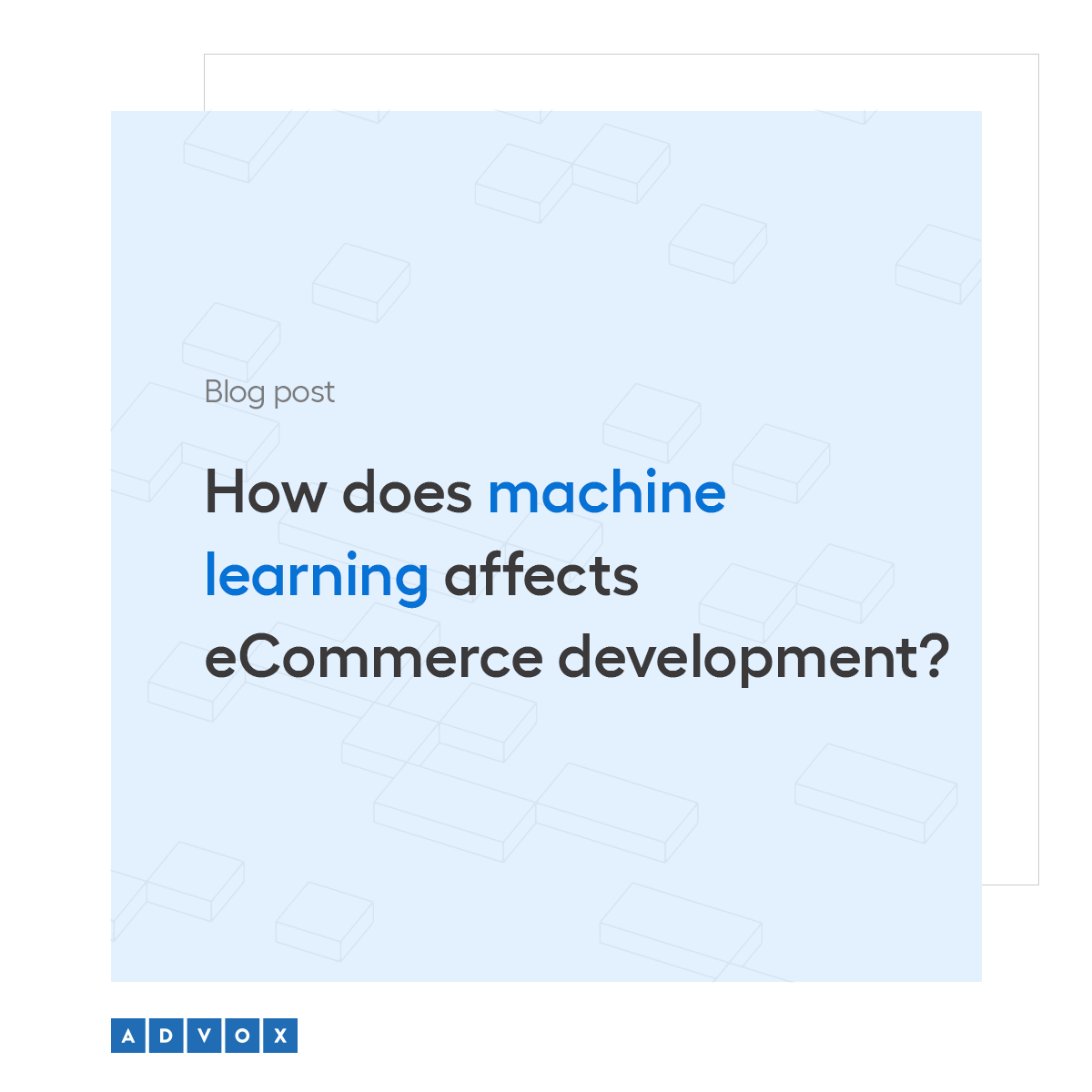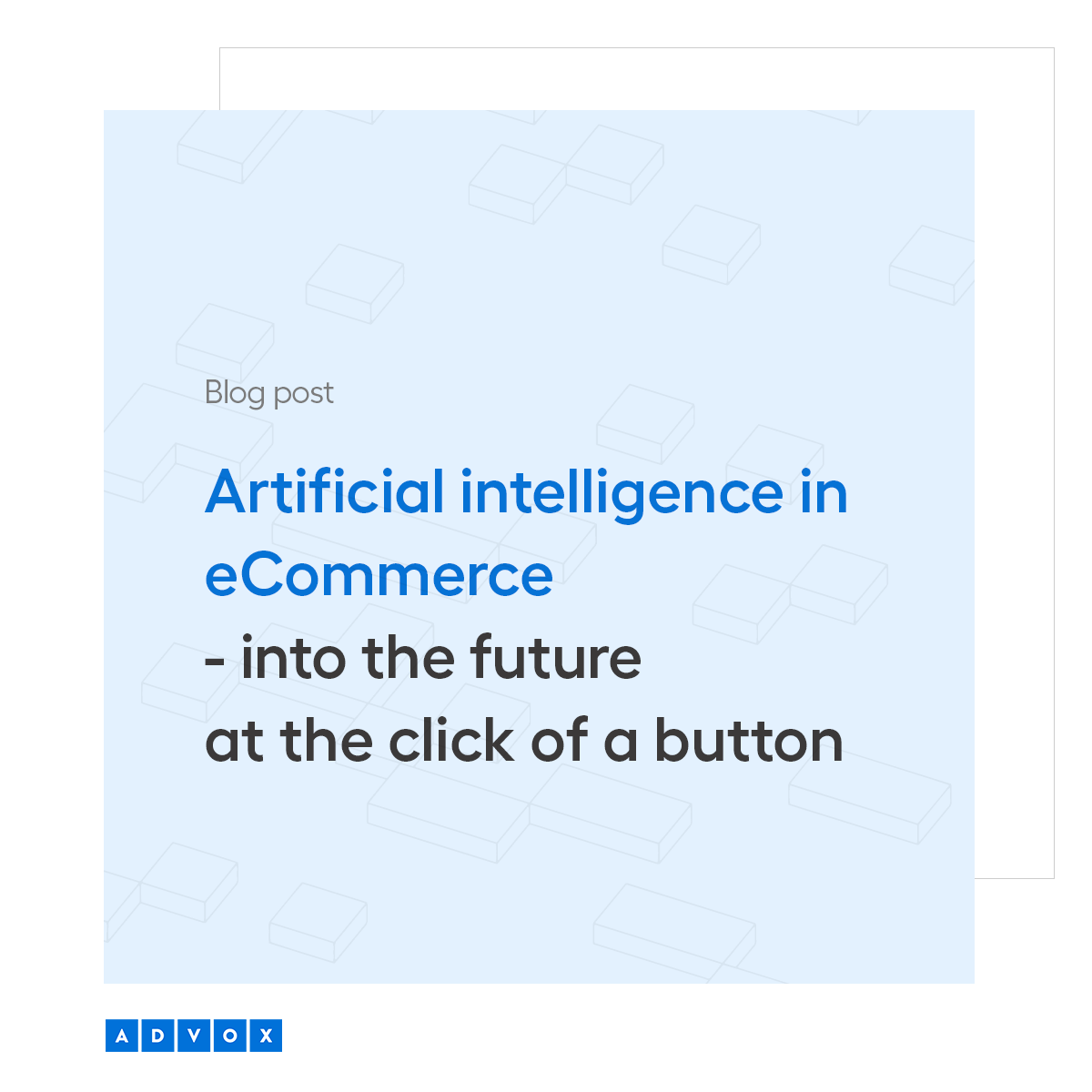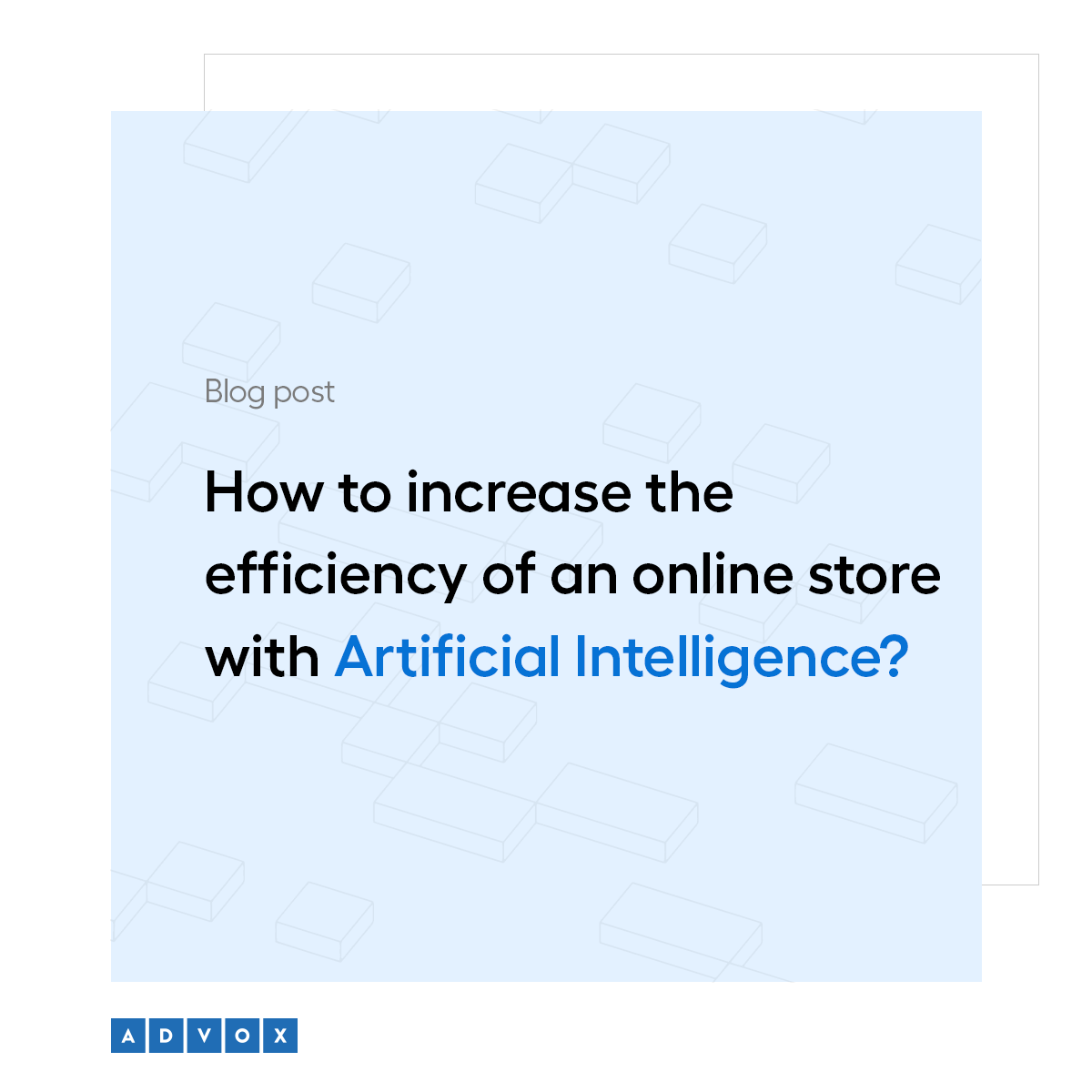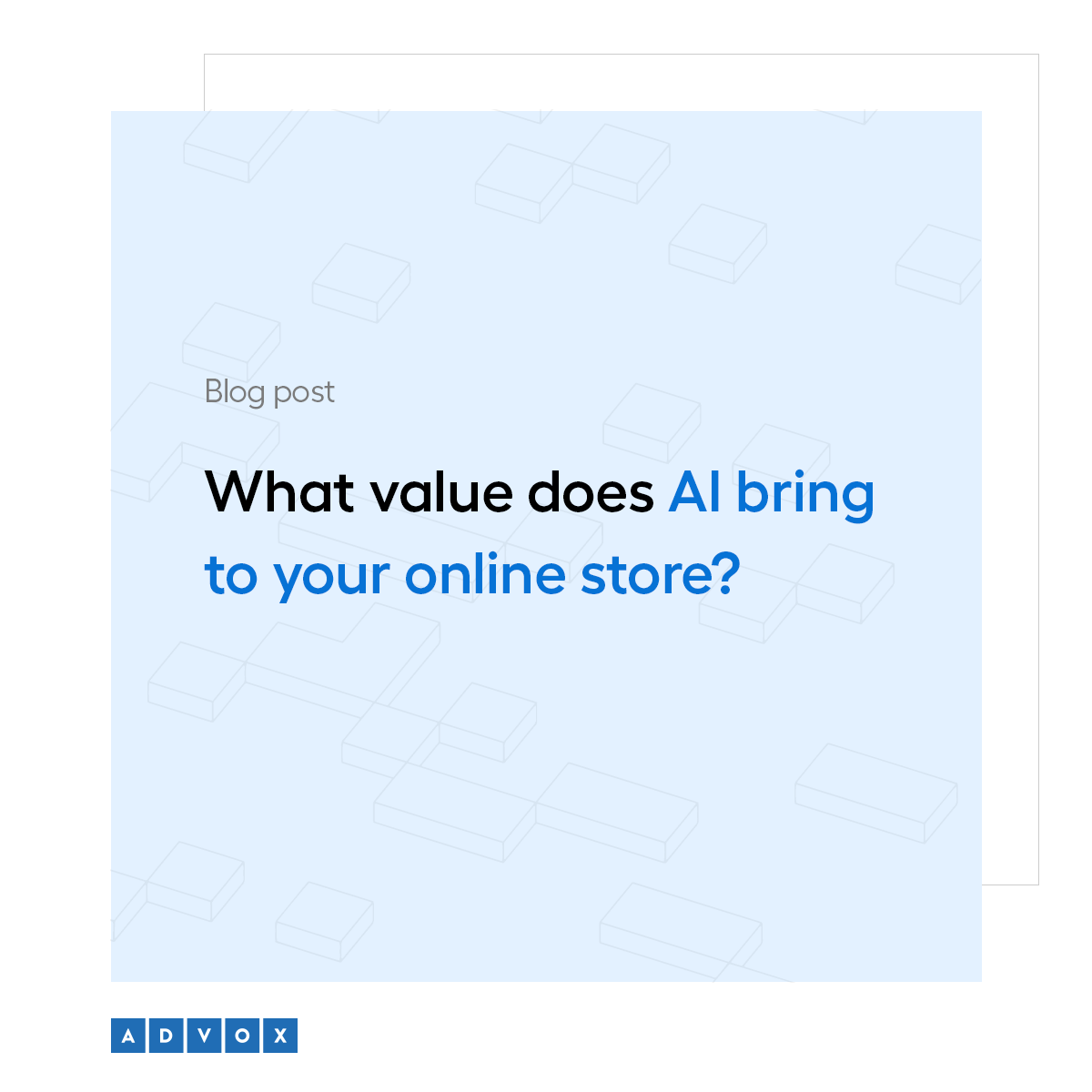Table of contents:
- Not just ChatGPT - what is generative artificial intelligence?
- How to use generative artificial intelligence in your online store?
- Content creation
- Intelligent search
- Chatbots and Virtual Assistants
- Personalization and product recommendations
- Growth, but also challenges - what risks does artificial intelligence bring?
- GenAI & eCommerce - will you go for this combination?
- images - AI can generate new graphics based on properly formulated prompts (using tools like Midjourney or DALL-E) and advanced editing of existing photos. Google, for example, offers Product Studio, which uses product photos to create arrangements resembling professional product sessions.
- video - in an era where video content attracts the most attention, it's worth incorporating it into the e-store communication strategy. Online tools like Synthesia or Visla allow easy generation of short films based on a written script or a pre-prepared text, such as a blog article.
- promotion strategies - artificial intelligence can be used not only for content creation but also for effective planning of promotional strategies. Tools like MarketMuse or Senuto use advanced algorithms for market and competition analysis, making strategy planning more focused on the actual needs and preferences of the audience.
- legal regulations - evolving technology generates new dilemmas regarding privacy, AI creations' ownership, and other legal aspects. These are gradually being regulated by lawmakers, so ongoing monitoring and adjustment of activities to legal regulations at both national and international levels are necessary. AI systems already need to consider regulations related to intellectual property protection, personal data protection, cybersecurity, or cloud data processing. Moreover, the European Parliament and the EU Council are currently working on a single, comprehensive regulation for AI. On December 9, 2023, these bodies reached an agreement on the world's first comprehensive regulation, the "AI Act," shaping the framework for future AI regulation that, if enacted, will apply to all EU member states.
- accuracy of generated content - despite advanced AI systems, verifying content for correctness and reliability is necessary, especially in industries like eCommerce, where avoiding errors is crucial both legally and for building customer trust.
- environmental issues - another significant threat gaining strength is the increasing energy expenditure associated with the growing demand for computing power to handle AI-based systems. Predictions suggest that by 2027, artificial intelligence could consume as much electricity as an entire country the size of the Netherlands. This challenge requires sustainable energy solutions to minimise the environmental impact of artificial intelligence.
November 30, 2022, marked a breakthrough not only for the eCommerce sector but also for many entrepreneurs, regardless of whether they operate online or traditionally. On this day, OpenAI released ChatGPT, the most popular tool using generative artificial intelligence (GenAI). What is the phenomenon of both this tool and similar ones? You'll find out in this article!
Not just ChatGPT - what is generative artificial intelligence?
Generative artificial intelligence is essentially the ability of machine learning-based systems to create new content such as texts, images, scripts, source code, or even musical compositions and videos. Ecommerce companies most commonly use this technology for marketing content creation and developing new products, resulting not only in accelerated design processes but also often increasing creativity and the effectiveness of business operations.
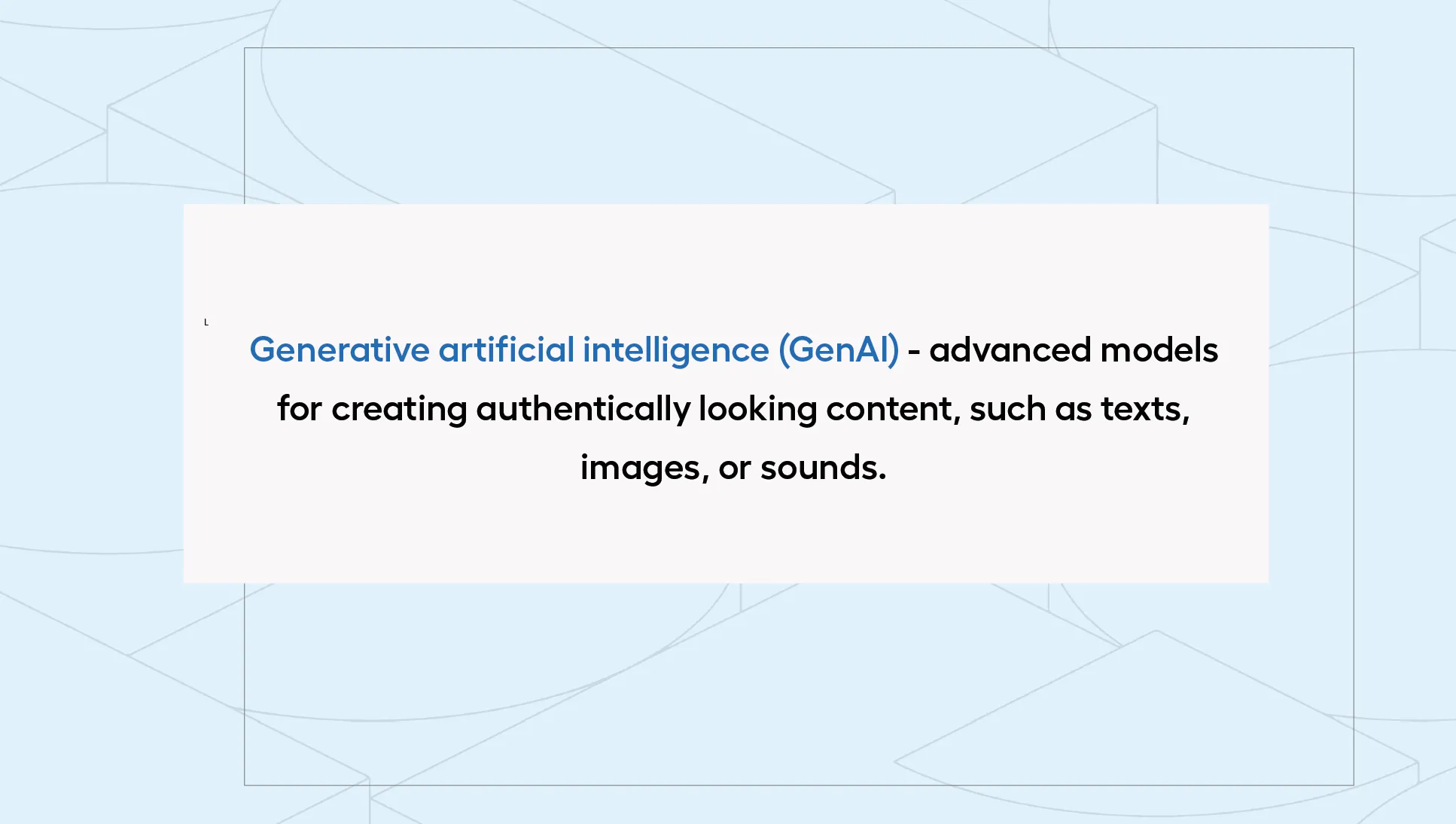
The rapid development of the OpenAI bot and the growing number of its users initiated a race among major market players in the GenAI field. As a result, new and enhanced tools using this technology emerged. Among them, notable mentions include the 4th version of ChatGPT (compatible with external plugins like DALL-E for image generation), Google's Bard, and an improved version of Microsoft's Bing search engine. Everything indicates that 2024 will be equally, if not more, groundbreaking in this field. What exactly can we expect in the coming months?
How to use generative artificial intelligence in your online store?
What elements should be considered in an effective sales strategy for an online store? In answering this question, besides established elements like pricing policies or customer needs analysis, it's increasingly valuable to emphasize the use of generative artificial intelligence. Through solutions based on this technology, online stores gain expanded capabilities to improve operational efficiency, customer communication, and offer personalization. Achieving such results is possible through the use of tools for creating multimedia content or the implementation of intelligent chatbots and product search engines. The most popular solutions of this kind are presented below - be sure to check them out if you don't want to lag behind the competition!
Content creation
Generating product descriptions or promotional content with AI tools has become an industry standard - in 2023, as much as 90% of content creators used AI tools to increase efficiency and speed up work on projects. Using GenAI allows, among other things, generating product descriptions tailored to the brand's specificity, the target audience's preferences, or SEO guidelines (increasing visibility in search results).
The potential of generative artificial intelligence is not limited to text creation. AI solutions also enable the generation of:
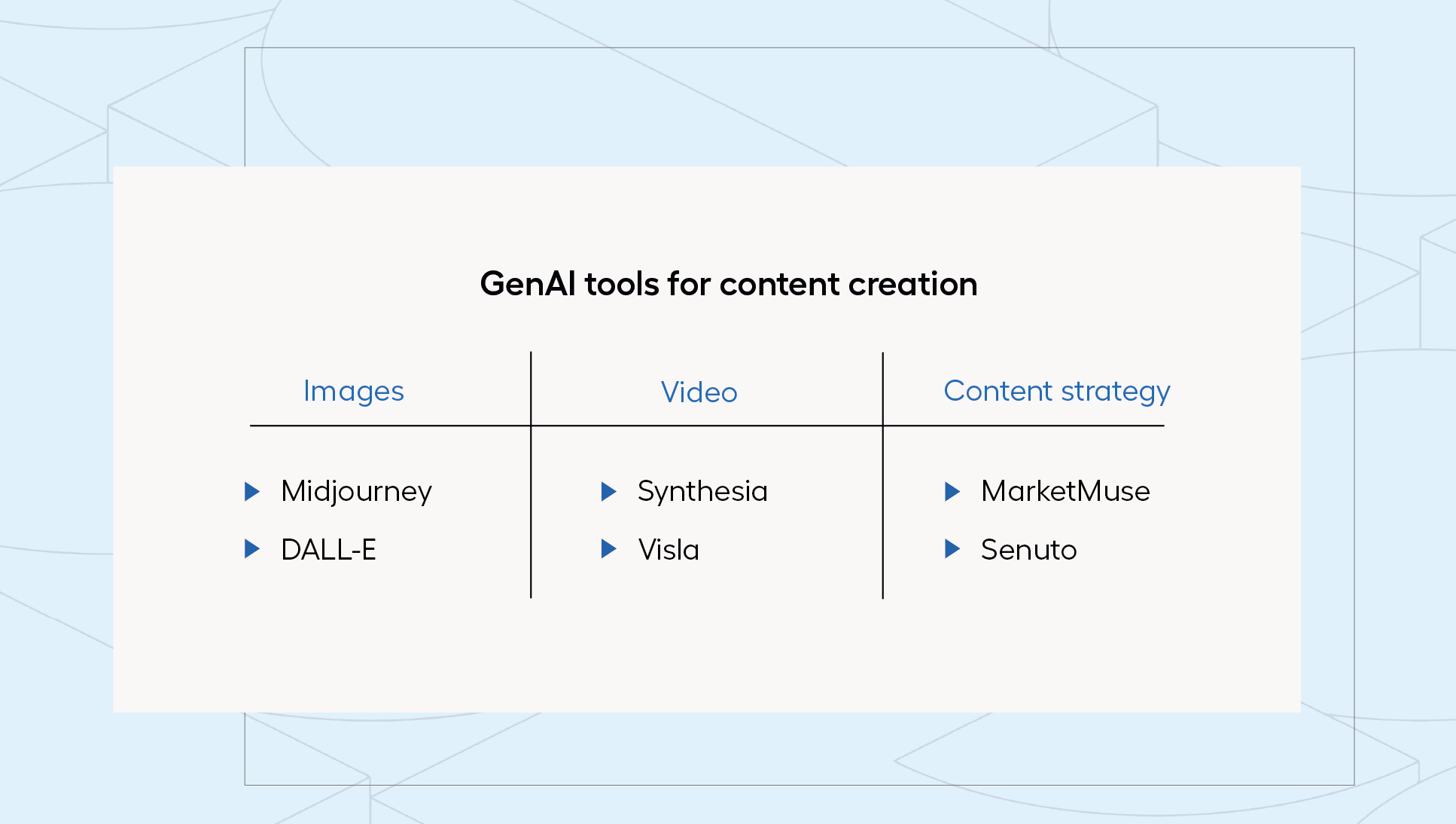
Intelligent search
Artificial intelligence also helps improve product search in e-stores, thanks to vector search. What is this solution? It's an advanced search method where data such as text, images, or audio content is transformed into vectors, with each element (e.g., a word in text or a pixel in an image) assigned a corresponding numerical value in the vector.
The main idea behind vector search is the ability to effectively find objects similar to each other, even if they are not identical. In practice, when a user enters a query, artificial intelligence compares it with pre-prepared vector data and finds the most similar elements. This allows for more accurate and relevant search results. Users can find the product they are interested in without knowing its exact name, describing only its specific features or appearance.
Vector-based technologies are used in many popular search engines such as ElasticSearch, Vespa, or Chroma, which can be integrated with your online store, offering more intuitive shopping experiences to your customers.
Chatbots and Virtual Assistants
Virtual assistants equipped with GenAI solutions can conduct personalized conversations, surpassing traditional chatbots limited by pre-trained scripts. Moreover, their extended capabilities often include the ability to converse in multiple languages, guide users through the entire purchase path, and analyze the conversation context, adapting to individual customer preferences and needs.
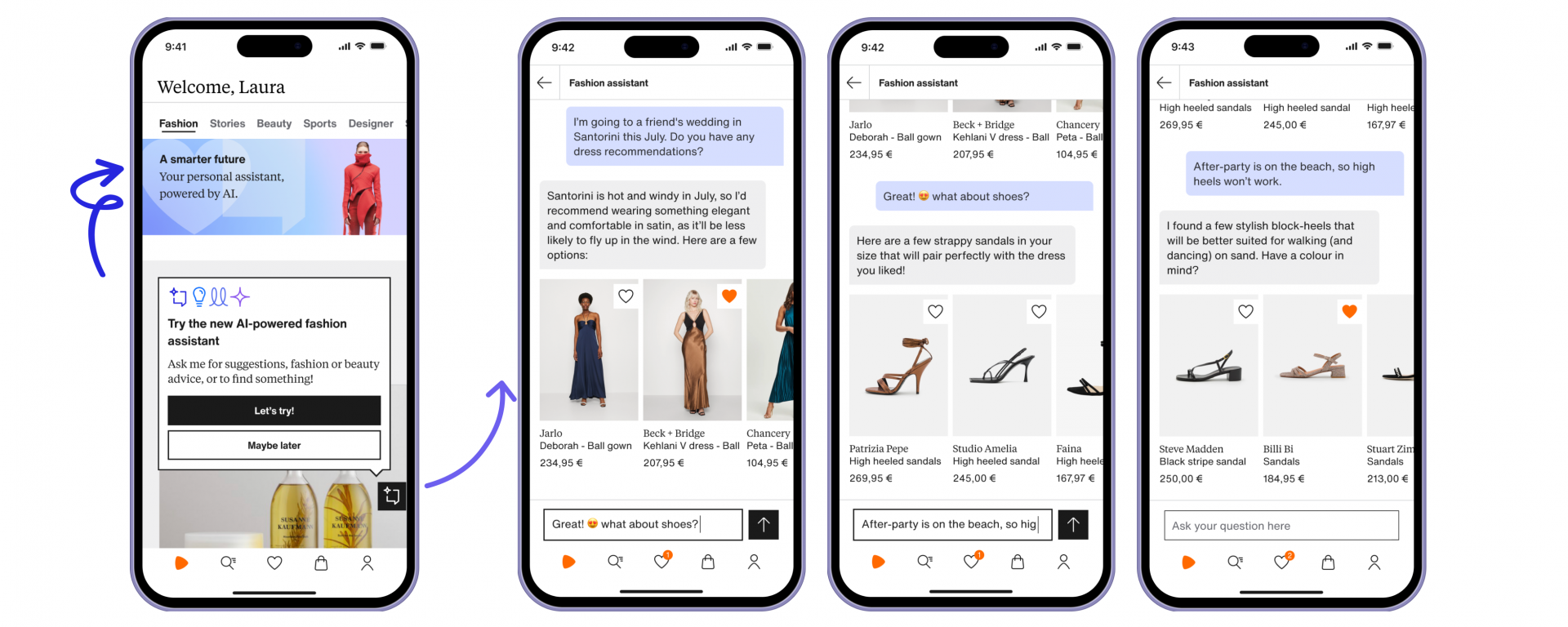 Zalando's Intelligent Assistant (source:https://corporate.zalando.com/en/technology/zalando-launch-fashion-assistant-powered-chatgpt)
Zalando's Intelligent Assistant (source:https://corporate.zalando.com/en/technology/zalando-launch-fashion-assistant-powered-chatgpt)
A prime example of such a solution is the virtual assistant developed by the Zalando marketplace, which can not only answer basic questions but also advise on the selection of clothes or accessories online. Implementing such a solution in your online store, however, does not require developing it "from scratch." There are now increasingly more ready-made plugins on the market that can be integrated with sales platforms, such as Chatfuel, yellow.ai, or Freshdesk.
Personalization and product recommendations
GenAI capabilities are also increasingly used to better understand the customer and, consequently, predict their purchasing decisions. Through the analysis of data related to preferences, purchase history, or online activity, artificial intelligence can create a detailed user profile. Based on this information, GenAI generates personalized product recommendations precisely tailored to individual customer needs and preferences.
Product recommendation systems based on GenAI (e.g., Vue.ai, Barilliance, ViSenze) can take into account even subtle preferences and changes in purchasing behavior, translating into more effective and satisfying customer experiences. Additionally, personalization is not limited to product recommendations only. AI can also adjust other elements, such as marketing content, promotional offers, or website layout, to individual user preferences.
Growth, but also challenges - what risks does artificial intelligence bring?
According to forecasts from the International Data Corporation (IDC), companies worldwide will be increasingly investing in AI solutions year by year. By 2024, these investments could reach around 40 billion dollars, and by 2027, it is predicted to rise to over 150 billion dollars. However, it's important to realize that such dynamic AI development brings not only benefits but also new risks and challenges. Therefore, when implementing GenAI solutions, it is essential to pay attention to:
Introducing GenAI into business brings significant benefits but also requires awareness and effective risk management. Therefore, a key element of success in this area is a holistic approach considering various aspects of implementing artificial intelligence into organizational activities.
GenAI & eCommerce - will you go for this combination?
Generative artificial intelligence has revolutionized the eCommerce industry. Furthermore, new GenAI-based tools continue to emerge, changing the approach to content creation, offer personalization, and customer communication day by day. For this reason, the positive decision to implement these solutions into your online store should not be in doubt (although it should be carefully considered for efficiency and safety). If you want to develop your e-store in tune with the times, you now know where to start - and we're happy to help you implement a modern sales platform, providing your customers with unique shopping experiences.
